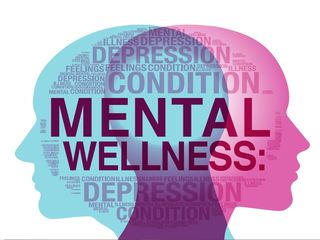The FDA outlines draft guidance on AI for medical devices
The agency also published draft guidance on the use of AI in drug development
Read more... Teens were among those hit hardest during the pandemic, with their mental health taking a serious toll; now, even years removed from the height of COVID, the mental health crisis for teens is still at pandemic levels: last year, nearly 20% of U.S. teens reported a major depressive episode.
Teens were among those hit hardest during the pandemic, with their mental health taking a serious toll; now, even years removed from the height of COVID, the mental health crisis for teens is still at pandemic levels: last year, nearly 20% of U.S. teens reported a major depressive episode.
Among their unique mental health challenges include peer pressure, social media stress, life transitions, self-esteem issues, body image concerns, trauma, and abuse, said Brad Kittredge, CEO and co-founder of Brightside Health, a company that delivers virtual mental health care for mild-to-severe clinical depression, anxiety, and other mood disorders.
Now the company will be expanding its offerings to help this population, announcing on Tuesday that it's expanding access to care to teens aged 13 to 17.
"At Brightside Health, we’re determined to provide life-saving mental healthcare to everyone who needs it. The ongoing crisis is exactly why we have expanded our services to provide high-quality, telemental health care for teens, working diligently to ensure they get the help they need," said Kittridge.
"We’d be remiss not to mention parents and caregivers of teens, especially after the Surgeon General’s warning, and we have built our program to deliver both appropriate engagement for the caregiver as well as offer them direct treatment."
When a member joins Brightside, they start with a free assessment leading to a personalized treatment plan. From there, members can make an appointment to be seen within 48 hours and get started working with the same care team from start to finish.
Brightside's platform includes personalized psychiatry with PrecisionRx, which provides AI-driven recommendations based on over 100 data points, as well as real-time care management, which can track progress and identify risk levels in near-real time, allowing for automated risk escalation to the provider. In addition, patients also get access to Crisis Care, a national telehealth program for treating individuals at elevated risk for suicide.
While clinical best practices for effective care for teens and adults are quite similar, meaning its care models among the two groups follow similar protocols and processes, Kittredge noted that there are a few notable differences. For one, the bar for prescribing medication to a teen is higher, and teens have specific prescribing considerations.
"We’ve updated our clinical protocols and our proprietary PrecisionRx algorithms to ensure that our teen members get the right medication management, when appropriate," he explained.
In addition, teen care needs to meet teens where they are and effectively engage them, so the company adapted it program to align with teen perspectives and experiences. Teen care also needs to include caregivers for consent and support, so Brightside is ensuring that the caregiver is involved but that the teen also has room to build a meaningful relationship with their provider.
Finally, teen care needs to include additional safeguards, such as in-session suicide risk assessment and timely follow ups.
The company will also address the problem of access of mental health care for teens, which can be particularly challenging due to multiple barriers, including that many teens struggle to ask for help and, even when they do, the available care options are often limited. A major issue is that many mental health providers don’t accept insurance, making services costly and out of reach for many families. When insurance is accepted, long wait times for appointments are common, delaying essential treatment.
On top of that, only a subset of providers are comfortable supporting teens at higher levels of severity, including those with suicidal ideation.
"Brightside Health will address these issues by partnering with teens and, when appropriate, their caregivers, with therapy or a combination of therapy and psychiatry services. Our programs include weekly video sessions, evidence-based skill building, progress tracking through our app, and extensive caregiver support to meet these needs effectively," said Kittredge.
Brightside Health currently reaches over 130 million covered lives with a broad range of telemental health services. It's available in all 50 states and D.C. with appointments in 48 hours or less. Its services can be paid for with insurance, including Commercial, Medicare, Medicaid, and Exchange, and are also available nationwide for self-paying members. Its model has show that, within 12 weeks, 86% of patients experience clinically significant improvement and 71% reach remission.
Brightside's teen services are currently available in 15 states to start: Arkansas, Arizona, Colorado, Delaware, Florida, Georgia, Iowa, Indiana, Michigan, Missouri, New York, North Carolina, Ohio, Texas, and Utah. The expectation is that the nationwide rollout of its teen services will be complete by early next year.
This expansion into youth and adolescent care comes on the heels of Brightside expanding to Medicaid and Medicare members through partnerships with payers to provide, including Optum, Blue Cross and Blue Shield of Texas, Centene, and Lucet last year. In February, it went further with that initiative, announcing new and expanded payer partnerships to support Medicaid and Medicare.
"Brightside Health has built the most comprehensive and rigorous virtual mental health platform in the industry, including support for mild to severe cases across commercial, Medicare, Medicaid, and exchange for ages 13+. We are uniquely known for treating high-severity cases and underserved populations to solve the hardest problems in mental healthcare, all with measurable outcomes," said Kittredge.
"Offering such a broad range of high quality and accessible services on a single platform allows us to effectively partner with payers and health systems to solve their biggest mental health challenges."
The agency also published draft guidance on the use of AI in drug development
Read more...The biggest focus areas for AI investing are healthcare and biotech
Read more...It will complete and submit forms, and integrate with state benefit systems
Read more...

